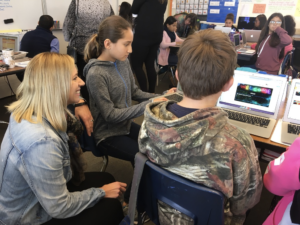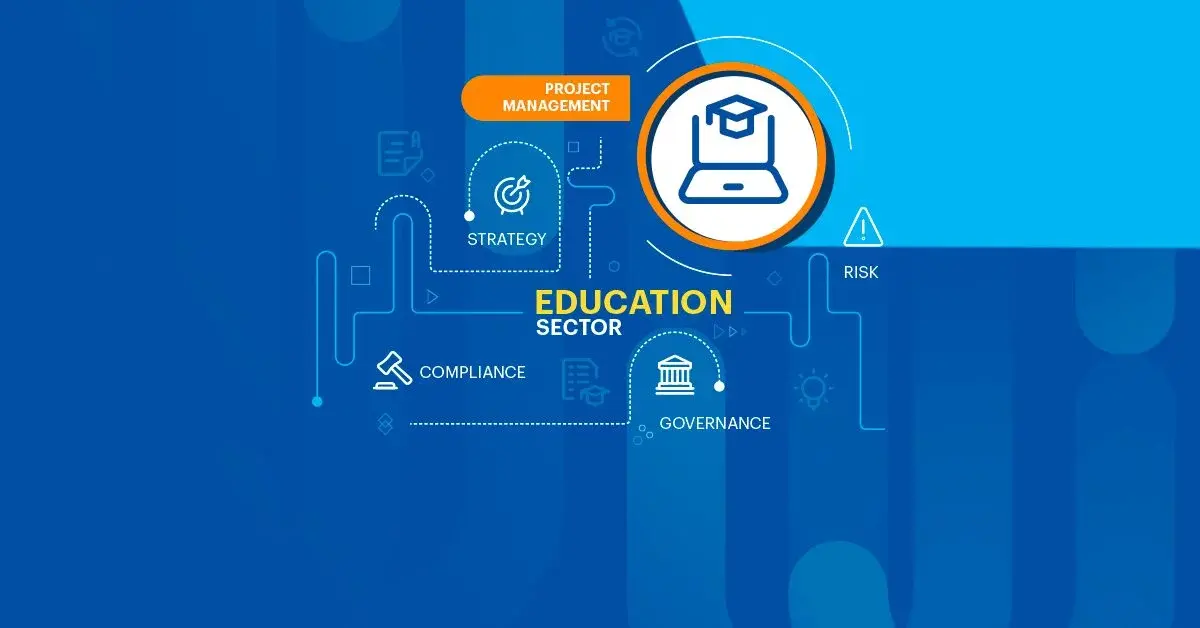

What Does an Education Project Manager Do?
Find out what an Education Project Manager does, how to get this job, salary information, and what it takes to succeed as an Education Project Manager.

The Education Project Manager plays an integral role in shaping the future of learning environments by overseeing the planning, execution, and completion of educational projects. This position involves collaborating with a diverse team of educators, administrators, and stakeholders to ensure projects meet their objectives, stay within budget, and are delivered on time. With a focus on innovation and improvement, the Education Project Manager is tasked with developing strategies that enhance educational programs, incorporating technology and modern teaching methodologies to create engaging and effective learning experiences. Through meticulous organization and clear communication, this role ensures that educational initiatives are aligned with institutional goals, ultimately contributing to the advancement of educational standards and practices.
Education Project Manager Job Duties
- Develop and implement comprehensive project plans that merge customer requirements with company goals and coordinate various managers and technical personnel during all project phases, from initial development through implementation.
- Analyze project progress and, when necessary, adapt scope, timelines, and costs to ensure that the project team adheres to project requirements.
- Establish and maintain relationships with third parties/vendors to create and deliver educational content that meets project specifications.
- Monitor and report on project progress, challenges, and successes to stakeholders and project team members, ensuring clear communication throughout the project lifecycle.
- Manage the financial aspects of the education project, including budgeting, expense monitoring, and invoicing, to ensure the project remains within financial constraints.
- Ensure that all educational materials produced meet specified quality standards and are in alignment with current educational trends and best practices.
- Facilitate professional development and training sessions for educators and staff to effectively implement new curriculum, technologies, or methodologies introduced by the project.
- Conduct post-project evaluation to assess the impacts and outcomes of educational initiatives, identifying lessons learned and recommendations for future projects.
Education Project Manager Salary & Outlook
Factors impacting an Education Project Manager’s salary include years of experience in education and project management, the scale and budget of projects managed, expertise in educational technology, success in grant writing and fund acquisition, and the ability to implement innovative educational programs that achieve measurable outcomes.
- Median Annual Salary: $91,875 ($44.17/hour)
- Top 10% Annual Salary: $153,000 ($73.56/hour)
The employment of education project managers is expected to grow faster than average over the next decade.
This growth is driven by increasing investments in educational technology, the expansion of online learning platforms, and the need for curriculum development to meet evolving educational standards. Education Project Managers are pivotal in orchestrating these initiatives, ensuring projects meet educational objectives and are delivered efficiently.
Education Project Manager Job Requirements
Education: An Education Project Manager typically holds a Bachelor’s Degree, with common majors including Education, Project Management, or a related field. Some possess an Associate’s Degree or a Post-Baccalaureate Certificate, often in education administration or curriculum development. Relevant coursework includes project management principles, educational theory, leadership, and strategic planning. Advanced degrees, such as a Master’s in Education Leadership, can enhance prospects, focusing on higher-level management and policy-making skills.
Experience: Education Project Managers typically come from a background rich in hands-on experience within educational settings, having progressed through roles that demand increasing responsibility. Their journey often includes significant exposure to curriculum development, instructional design, and the management of educational programs. On-the-job training and participation in professional development programs are common, equipping them with the skills to oversee projects, lead teams, and implement innovative educational solutions. Their experience is complemented by a deep understanding of educational methodologies and the ability to adapt to the evolving needs of learners and institutions.
Certifications & Licenses: Certifications and licenses are not typically required for the role of Education Project Manager.
Education Project Manager Skills
Curriculum Development: Developing engaging, relevant, and comprehensive learning materials necessitates a profound grasp of both the subject matter and pedagogical strategies. Education Project Managers must ensure that educational objectives are efficiently and creatively met, aligning curriculum design with overarching project goals. This involves a seamless integration of content, assessment, and instructional methods tailored to diverse learning environments and student needs.
Stakeholder Engagement: Engaging effectively with stakeholders, including students, parents, faculty, and community partners, is imperative for aligning educational projects with the expectations and needs of all parties. It enables Education Project Managers to communicate effectively, solicit feedback, and incorporate diverse perspectives into project planning and execution, thereby enhancing the impact and sustainability of educational initiatives.
Educational Technology Integration: The integration of digital tools and learning platforms into curriculum development and instructional strategies enhances teaching effectiveness and student engagement. Education Project Managers must have a keen eye for evaluating emerging educational technologies and a strategic approach to their implementation, ensuring alignment with educational goals and improved learning outcomes.
Grant Writing: Writing compelling proposals to secure funding from various sources is a critical responsibility for Education Project Managers. It involves conducting meticulous research, writing persuasively, and strategically aligning project goals with the priorities of potential funders to ensure the successful acquisition of grants.
Assessment Design: Designing evaluations that accurately measure learning outcomes and align with educational goals is a complex task. It requires a profound understanding of pedagogical theories and their practical application, enabling Education Project Managers to gauge student progress effectively and enhance the learning experience by identifying areas for curriculum improvement.
Change Management: Adapting to evolving educational landscapes and stakeholder expectations demands a strategic approach to new policies, curricula, and technologies. Education Project Managers must ensure seamless transitions and maintain project momentum amidst shifts in educational standards, methodologies, and learning environments.
Education Project Manager Work Environment
An Education Project Manager typically operates within a dynamic environment that blends traditional office settings with modern, digital workspaces. This role often involves a mix of in-person and virtual collaboration, utilizing a variety of digital tools and platforms to manage projects, communicate with team members, and oversee educational content development. The workspace is designed to foster creativity and efficiency, equipped with the necessary technology to support project management software and communication tools.
Work hours for this position can vary, with a blend of standard office hours and flexibility to accommodate project deadlines and meetings across different time zones. This role may require occasional travel for site visits, conferences, or team meetings, though much of the interaction with stakeholders and team members is conducted online.
The social environment encourages continuous learning and professional development, with opportunities for training and advancement. The pace can be fast, driven by project timelines and educational cycles, but the culture often emphasizes teamwork, support, and a shared commitment to educational goals.
Advancement Prospects
An Education Project Manager can advance to senior project management roles, overseeing larger, more complex educational initiatives. This progression often involves taking on projects with higher budgets and broader impacts, such as district-wide curriculum implementations or national education programs.
To achieve this, demonstrating success in managing diverse teams and delivering projects on time and within budget is crucial. Mastery in adapting to the evolving educational technologies and methodologies can set a foundation for moving into consultancy roles, advising educational institutions on project management best practices and innovation.
Leadership in this field can also extend to policy development, working with educational boards or government bodies to shape the future of education. Success in this area requires a deep understanding of educational policy, stakeholder engagement, and strategic planning.
Ultimately, the path to advancement is marked by a combination of project success, strategic vision, and the ability to influence the broader educational landscape.
What Does a Medicare Sales Agent Do?
What does a warehouse lead do, you may also be interested in..., what does a medical supervisor do, 15 biology teacher skills for your career and resume, what does a companion caregiver do, 15 compliance officer skills for your career and resume.
Implementing Project Management in Schools
- First Online: 22 May 2018
Cite this chapter

- Miri Yemini 4 ,
- Izhar Oplatka 4 &
- Netta Sagie 5
594 Accesses
1 Citations
The first chapter outlines the history and definitions of projects and project management from the managerial approach (Meredith & Mantel, Project management: A managerial approach, Wiley, 2011) in diverse organizations and makes the reader familiar with major concepts used in the discipline of project management. It then goes on to discuss the particular features of schools as a distinguished form of organization that is different from for-profit firms and businesses as well as from other non-profit organizations that therefore make it necessary to propose a different modeling of project management in educational institutions. The chapter concludes with the presentation of the uniqueness of project management in the education sector and particularly in schools, discussing the specificities of schools in relation to initiation and development of projects at pedagogical, organizational, ethical, political, social, and other levels. This book implicitly focuses on public schooling, but most of the implications are suitable for use in private schooling as well.
This is a preview of subscription content, log in via an institution to check access.
Access this chapter
- Available as EPUB and PDF
- Read on any device
- Instant download
- Own it forever
- Durable hardcover edition
- Dispatched in 3 to 5 business days
- Free shipping worldwide - see info
Tax calculation will be finalised at checkout
Purchases are for personal use only
Institutional subscriptions
The Program Evaluation and Review Technique (PERT) and the Critical Path Method (CPM) are systems used for project planning and scheduling (Pinto, 2013 ).
Astiz, M. F., Wiseman, A. W., & Baker, D. P. (2002). Slouching towards decentralization: Consequences of globalization for curricular control in national education systems. Comparative Education Review, 46 (1), 66–88.
Article Google Scholar
Beijaard, D., Meijer, P. C., & Verloop, N. (2004). Reconsidering research on teachers’ professional identity. Teaching and Teacher Education, 20 (2), 107–128.
Ben-Peretz, M., Mendelson, N., & Kron, F. W. (2003). How teachers in different educational contexts view their roles. Teaching and Teacher Education, 19 , 277–290.
Bidwell, C. E. (1965). The school as a formal organization. In J. G. March (Ed.), Handbook of organizations (pp. 972–1022). Chicago: Rand-McNally.
Google Scholar
Biesta, G. J. J., & Miedema, S. (2002). Instruction or pedagogy? The need for a transformative conception of education. Teaching and Teacher Education, 18 (2), 173–181.
Cleland, D. I., & Ireland, L. R. (2006). Project management: Strategic design and implementation (5th ed.). New York: McGraw-Hill.
Darling-Hammond, L., Wise, A. E., & Klein, S. P. (1995). A license to teach: Building a profession for 21st century schools . Boulder: Westview Press.
Day, C. (2002). School reform and transitions in teacher professionalism and identity. International Journal of Educational Research, 37 (8), 677–692.
Doyle, W. (1990). Themes in teacher education research. In W. R. Houston & M. Day (Eds.), Developing teachers: The challenges of lifelong learning (pp. 1–24). London: Falmer Press.
Dvir, D., Raz, T., & Shenhar, A. (2003). An empirical analysis of the relationship between project planning and project success. International Journal of Project Management, 21 (2), 89–95.
Firestone, W. A., & Herriott, R. E. (1982). Two images of schools as organizations: An explication and illustrative empirical test. Educational Administration Quarterly, 18 (2), 39–59.
Goldring, E., & Schuermann, P. (2009). The changing context of K–12 education administration: Consequences for Ed. D. Program design and delivery. Peabody Journal of Education, 84 (1), 9–43.
Goren, H., & Yemini, M. (2015). Global citizenship education in context: Teacher perceptions at an international school and a local Israeli school. Compare: A Journal of Comparative and International Education, 46 (5), 832–853.
Hoy, W. K., & Miskel, C. G. (2008). Educational administration: Theory, research and practice . New York: McGraw-Hill.
Hoyle, E., & John, P. D. (1995). Professional knowledge and professional practice . London: Cassell.
Kerzner, H. R. (2013). Project management: A systems approach to planning, scheduling, and controlling (11th ed.). Hoboken, NJ: John Wiley & Sons.
Knutson, J. (2001). Succeeding in project-driven organizations: People, processes, and politics . New York: John Wiley & Sons.
Korthagen, F. A. J. (2004). In search of the essence of a good teacher: Towards a more holistic approach in teacher education. Teaching and Teacher Education, 20 (1), 77–97.
Lake, C. (1997). Mastering project management . London: Thorogood.
Larson, E. (2007). Project management structures. In P. Morris & J. K. Pinto (Eds.), The Wiley guide to project organization and project management competencies (pp. 48–66). San Francisco: John Wiley & Sons.
Chapter Google Scholar
Lieberman, A., & Miller, L. (1984). The social realities of teaching. In A. Lieberman & L. Miller (Eds.), Teachers, their world, and their work (pp. 153–163). Alexandria, Virginia: Association for Supervision and Curriculum Development.
Lientz, B. P., & Rea, K. P. (1998). Project management for the 21st century (2nd ed.). San Diego: Academic Press.
Lortie, D. C. (1975). Schoolteacher: A sociological study . Chicago: The University of Chicago Press.
McLaren, P. (1995). Critical pedagogy in the age of global capitalism: Some challenges for the educational left. Australian Journal of Education, 39 (1), 5–21.
McLaren, P. (2005). Capitalists and conquerors: A critical pedagogy against empire . Lanham, MD: Rowman & Littlefield Publishers.
Meredith, J. R., & Mantel, S. J., Jr. (2011). Project management: A managerial approach . Danvers: Wiley.
Meyer, J. W., & Rowan, B. (1978). The structure of educational organizations. In M. W. Meyer (Ed.), Environments and organizations (pp. 78–109). San Francisco: Jossey- Bass.
Moore, A. (2004). The good teacher: Dominant discourse in teaching and teacher education . London: Routledge Falmer.
Book Google Scholar
Morris, P. W. G. (2011). A brief history of project management. In P. W. G. Morris, J. K. Pinto, & J. Soderlund (Eds.), The Oxford handbook of project management (pp. 15–36). New York: Oxford University Press.
Munthe, E. (2003). Teachers’ workplace and professional certainty. Teaching and Teacher Education, 19 (8), 801–813.
Nias, J. (1999). Primary teaching as a culture of care. In J. Prosser (Ed.), School culture (pp. 66–81). London: Paul Chapman.
Ornstein, A. C. (1989). Theoretical issues related to teaching. Education and Urban Society, 22 (1), 95–104.
Pinto, J. K. (2013). Project management: Achieving competitive advantage . New York: Pearson/Prentice Hall.
Schwalbe, K. (2009). An introduction to project management (2nd ed.). Boston: Course Technology Cengage Learning.
Selwyn, N. (2011). Education and technology: Key issues and debates . London: Continuum.
Soderlund, J. (2011). Theoretical foundations of project management: Suggestions for a pluralistic understanding. In P. W. G. Morris, J. K. Pinto, & J. Soderlund (Eds.), The Oxford handbook of project management (pp. 37–64). New York: Oxford University Press.
Springer, M. L. (2010). Project and program management: A competency approach (3rd ed.). West Lafayette, IN: Purdue University Press.
Sykes, G. (1999). Teacher and student learning: Strengthening their connection. In L. Darling-Hammond & G. Sykes (Eds.), Teaching as the learning profession: Handbook of policy and practice (pp. 151–179). San Francisco: Jossey-Bass.
Tyler, W. (1988). School organization: Sociological perspective . London: Croom Helm.
Van den Berg, R. (2002). Teachers’ meanings regarding educational practice. Review of Educational Research, 72 (4), 577–625.
Webster, F. M. (2014). What is project management? Project management concepts and methodologies. In P. C. Dinsmore & J. Cabanis-Brewin (Eds.), The AMA handbook of project management (4th ed.). Temple Hills, MD: American Management Association.
Weick, K. E. (1976). Educational organizations as loosely coupled systems. Administrative Science Quarterly, 21 (1), 1–19.
Weick, K. E. (1982). Administering education in loosely coupled schools. The Phi Delta Kappan, 63 (10), 673–676.
Wong, Z. (2007). Human factors in project management: Concepts, tools, and techniques for inspiring teamwork and motivation . San Francisco: Joessy-Bass.
Download references
Author information
Authors and affiliations.
School of Education, Tel Aviv University, Tel Aviv, Israel
Miri Yemini & Izhar Oplatka
School of Education, Tel Aviv University, Ramat Gan, Israel
Netta Sagie
You can also search for this author in PubMed Google Scholar
Rights and permissions
Reprints and permissions
Copyright information
© 2018 The Author(s)
About this chapter
Yemini, M., Oplatka, I., Sagie, N. (2018). Implementing Project Management in Schools. In: Project Management in Schools. Palgrave Pivot, Cham. https://doi.org/10.1007/978-3-319-78608-7_1
Download citation
DOI : https://doi.org/10.1007/978-3-319-78608-7_1
Published : 22 May 2018
Publisher Name : Palgrave Pivot, Cham
Print ISBN : 978-3-319-78607-0
Online ISBN : 978-3-319-78608-7
eBook Packages : Education Education (R0)
Share this chapter
Anyone you share the following link with will be able to read this content:
Sorry, a shareable link is not currently available for this article.
Provided by the Springer Nature SharedIt content-sharing initiative
- Publish with us
Policies and ethics
- Find a journal
- Track your research
Publications
On-demand strategy, speaking & workshops, latest articles, write for us, library/publications.
- Competency-Based Education
- Early Learning
- Equity & Access
- Personalized Learning
- Place-Based Education
- Post-Secondary
- Project-Based Learning
- SEL & Mindset
- STEM & Maker
- The Future of Tech and Work

Lona Running Wolf on Education Reform and Cultural Preservation
Sarah elizabeth ippel on the cultivate project and global citizenship, yu-ling cheng on remake learning days, jennifer mellor and mike huckins on how chambers of commerce can get involved in accelerated pathways, recent releases.
New Pathways Handbook: Getting Started with Pathways
Unfulfilled Promise: The Forty-Year Shift from Print to Digital and Why It Failed to Transform Learning
The Portrait Model: Building Coherence in School and System Redesign
Green Pathways: New Jobs Mean New Skills and New Pathways
Support & Guidance For All New Pathways Journeys
Unbundled: Designing Personalized Pathways for Every Learner
Credentialed Learning for All
AI in Education
For more, see Library | Publications | Books | Toolkits
Microschools
New learning models, tools, and strategies have made it easier to open small, nimble schooling models.
Green Schools
The climate crisis is the most complex challenge mankind has ever faced . We’re covering what edleaders and educators can do about it.
Difference Making
Focusing on how making a difference has emerged as one of the most powerful learning experiences.
New Pathways
This campaign will serve as a road map to the new architecture for American schools. Pathways to citizenship, employment, economic mobility, and a purpose-driven life.
Web3 has the potential to rebuild the internet towards more equitable access and ownership of information, meaning dramatic improvements for learners.
Schools Worth Visiting
We share stories that highlight best practices, lessons learned and next-gen teaching practice.
View more series…
About Getting Smart
Getting smart collective, impact update, project management for education.

Bernie Trilling has been on a decade-long journey to bridge professional project management and project-based learning. His new book, Project Management for Education , makes the case that project-based learning (PBL) is the best way to build 21st-century skills and that project management is the most important career skill.
Project Management for Education, developed and published by the Project Management Institute Educational Foundation , makes this case:
- Learning Projects are great vehicles for students to gain essential 21C Skills.
- One of the biggest lifts for both teachers and students is managing all those pesky moving parts of rich, motivating learning projects – a real challenge for PBL.
- Who knows the most about managing projects? Project Managers! And the world’s largest organization of PMs – the Project Management Institute .
- Find out what makes projects sing, and adapt the business and engineering principles and practices for educators.
Pretty straightforward, right? Only the last bullet took longer than Bernie imagined because.
Business project management and project-based learning have had little overlap. Ask PBL teachers if they’ve ever had any training in project management – not many hands go up. And, not many project managers have had any K-12 teaching experience. (Having been a project manager in energy, construction, and technology before becoming a school administrator, I’m thrilled Bernie and PMI made this connection!)
Published later this month, the book is two-sided. One side of the book is for educators, flip it over, and the other side is for project managers, with a “rainbow bridge” center section of illustrated case studies.
The guiding equation of Project Management for Education is:
PM + PBL = Deeper Learning for Career, Community and Life
In writing the educator part of this book, Bernie had a couple of important insights. The first is that there is a basic set of phases to managing any project and a number of variations built up from this basic Project Cycle (bottom of the chart) that can be applied to any project challenge. The following chart shows the similarities and differences in different types of projects:
Second, more work needs to be to be done in adapting “exploratory” or “agile” project management methods for education. Here is a chart of how these two project types map against the basic Define, Plan, Do, Review process:
And third, Bernie’s most important insight is that this is not just about getting things done–the Define, Plan, Do, Review process is really a learning process.
“This project cycle just may be education’s most important missing link in nurturing self-propelled, self-reliant, lifelong learners,” said Trilling.
Project management includes core skills and processes for helping any learner l earn-how-to-learn –the metacognition skills for a lifetime of learning.
On the subject of core skills, Trilling knows what he’s talking about. With Charles Fadel, he’s co-author of Four-Dimensional Education: The Competencies Learners Need to Succeed an important book and outcome framework.
Project Management for Education is an important book. It outlines a rigorous approach to project-based learning not only because it is engaging but because project management is a core career skill and (with reflection) the best approach to learning how to learn.
For more, see:
- Finding The Critical Path is a Critical Project Management Skill
- Lifelong Learning + Project Management
- Project Management Solutions for the 21st-Century Student
- Building Better Teams for Project-Based Work
- Projects That Learn
- Project or Activity? Project-Based Learning and Cousins
Stay in-the-know with all things EdTech and innovations in learning by signing up to receive Getting Smart’s weekly Smart Update .

Tom Vander Ark
- @tvanderark
- @TomVanderArk
Discover the latest in learning innovations
Sign up for our weekly newsletter.
Related Reading


Real World Learning: Client Projects Are Trending

Empower Online Learners: Top 10 Pro Tips for Project Design and Delivery

Out with the Test, in With PBL: How Project- Based Learning is Transforming Remote Learning

How Systems and States Can Encourage Better Project-Based Learning
Leave a comment.
Your email address will not be published. All fields are required.
Nominate a School, Program or Community
Stay on the cutting edge of learning innovation.
Subscribe to our weekly Smart Update!
Smart Update
What is pbe (spanish), designing microschools download, download quick start guide to implementing place-based education, download quick start guide to place-based professional learning, download what is place-based education and why does it matter, download 20 invention opportunities in learning & development.
How Project Management Revolutionizes Education

As the education sector faces the imperative to continually improve and adapt, the role of effective project management stands out as essential for achieving success. Project management in education goes further than traditional business practices, embracing the distinct challenges and opportunities that educational institutions present, including aligning with teaching staff goals and objectives.
This strategic methodology ensures that educational entities, from schools to universities, can effectively roll out initiatives that boost their quality of service, infrastructure, and engagement with all stakeholders.
The Importance of Project Management in the Education Sector
The critical nature of project management within the education sector is undeniable. With the futures of young individuals and the societal demand for equitable, superior education at stake, the deployment of adept project management strategies becomes crucial for setting and meeting project goals.
Such strategies empower educational institutions to fulfil ambitious goals related to educational reform, technological progress, and infrastructure enhancement, even within the limits of tight budgets and strict timelines. Furthermore, project management cultivates a culture of accountability, ensuring that educational projects are in line with overarching institutional objectives and compliance standards.
This strategic congruence is vital for those institutions that strive to deliver outstanding educational experiences and achievements.
The Complexities of Educational Project Management
Managing projects in the educational sphere involves overcoming a complex array of challenges, including ensuring all team members are aligned with the project’s goals and objectives amid the vast regulatory environment. Projects can range from improving physical infrastructure to revising curricula, or implementing digital innovations, each with its distinct hurdles and dependencies.
These endeavours necessitate careful planning, implementation, and ongoing oversight to ensure they meet educational goals and the expectations of stakeholders. The intricate nature of such projects requires a customized approach to project management, one that honours the specific culture, objectives, and limitations of educational institutions.
Unlock the future of learning with Camms tailored project management solutions that will transform your educational institution.
Employing Strategic Project Management in Educational Institutions
It’s not just students who must manage projects effectively in their pursuit of excellence. The educational institutions – schools, colleges, and universities – that are charged with imparting the knowledge and skills they need to flourish, must manage multiple projects & portfolios to enhance their facilities and the level of education provided – to stay relevant.
Educational projects often vary in size and time to completion – from larger projects like constructing or modernising facilities, introducing new technology or rolling out a new curriculum, to smaller – yet critical – projects like parents’ evenings, after-school activities, and induction days.
Forward-thinking educational institutions understand that traditional manual processes – such as spreadsheets, emails, shared drives, and documents – create inefficiencies when collaborating on projects and tracking progress amid a multitude of dependencies and risks . Consequently, they are turning to specialist project management tools that support the delivery of critical – and complex – projects on time by establishing a structured framework that fosters effective collaboration and facilitates transparent information sharing amongst teams.
How Project Planning Tools Can Help
Specialist software allows education institutions to understand projects – and the associated tasks & risks – using a structured framework that provides the foundation for holistic management – and the benefits are compelling:
- Break down larger projects into smaller tasks and actions.
- Assign ownership of each element of the project throughout the organisation.
- Adds a layer of governance & structure, ensuring important milestones are not missed.
- Captures information in a consistent format enabling progress to be easily tracked.
- Maps key milestones & timelines and prompts staff to tick off the status of completed tasks.
- Facilitates structured sign-off and approval workflows for senior stakeholders.
- Provides financial oversight: map budget plans, track estimates, get budget approvals, log expenditures, forecast expected expenditures, and capture unforeseen costs.
- Log purchase orders and invoices to reconcile expenditures throughout the project lifecycle, with everything dated, time-stamped, and documented, making budget management more manageable .
- Track the resources and time allocated to specific project areas, enabling leaders to plan accordingly and ensure measurable and achievable objectives.
- Link project management to legacy systems via application programming interfaces (APIs), allowing operational data to be aligned with projects – and organisational objectives.
Lead with purpose! Boost your ESG efforts with our comprehensive software. Make sustainability your strategic advantage. Learn more about our social governance software .
Managing Multiple Stakeholders
The successful delivery of specific projects is underpinned by a variety of stakeholders – both internal and external. For example, projects sometimes require the support of a third-party contractor, such as builders for construction and maintenance projects or managed service providers for digital transformation projects – adding a layer of complexity to the project management process.
The ability to set up workflows – with dependencies – for specific stages of a project is particularly useful when multiple stakeholders are involved. Projects are sometimes hindered by task bottlenecks, preventing stakeholders from completing their tasks on time because previous steps have been delayed.
Specialist project management tools can be used to implement workflows that send automated notifications when specific tasks are completed or the required approval has been authorised. This allows each team member to commence their task without delay – driving efficiency and helping achieve project deadlines.
The successful delivery of projects in education mirrors the intricate project management in the pharmaceutical industry , where multiple stakeholders must align for successful outcomes.
Enhanced Data Sharing and Communication
Project management software facilitates efficient data sharing across teams and stakeholders. This single-pane-of-glass view allows stakeholders to track the progress of each stage of the project via an intuitive dashboard – and understand the role they play in the project management process. Laborious progress meetings subsequently become unnecessary due to the oversight provided by the software, enabling teams to monitor progress more efficiently.
Empowered by valuable insights at the touch of a button, project managers can streamline projects more efficiently, eliminating the need to chase staff for status updates. This provides the structure and understanding required to achieve a holistic approach to project management that’s driven from the top down and implemented from the bottom up throughout the project lifecycle.
Project management software supports collaboration across teams and departments, ensuring consistent processes are implemented throughout the educational institution. Real-time dashboards – which can be viewed by all stakeholders at any time – and built-in reporting functionality, allows progress reports to be produced instantaneously for individual tasks to guide the allocation of resources and budgets across multiple projects and balance workload & expenditure.
Discover how our solutions can transform your organization. Schedule your demo today and see the difference!
Improved Governance, Risk and Compliance
Mature educational institutions and Local and regional governments (LRG) use project management software that is augmented by governance risk and compliance (GRC) capabilities, and strategy management and incident management tools – added functionality that offers several benefits:
- Software solutions that incorporate risk management ensure project-related risks are added to the risk register and tracked. Controls can be established to flag risks using key risk indicators (KRIs) and tolerances.
- Software solutions that incorporate GRC capabilities consider the compliance requirements of all projects. These requirements can be linked to the obligations register, allowing necessary adjustments to be made when a relevant regulation changes or is created.
- Education institutions that harness strategy management tools can link projects to their overall strategy and leverage progress functionality to understand their ability to achieve organisational goals.
- Best-practice incident management tools can be used in conjunction with project management software. This enables all project-related incidents to be logged and managed through to resolution – including automated alerts ensuring relevant stakeholders are notified immediately, effectively keeping the project on track and within the deadline. Root cause analysis can also be conducted to understand how an incident happened and proactive measures can be implemented to mitigate the risk, making future projects more manageable.
Embracing Project Management Software for Education
The scope for project management tools to enhance the education sector is leading to their rapid adoption in schools, colleges, and universities – consigning antiquated manual processes to the past. Their ability to enhance the implementation of key projects and initiatives through automation is helping these institutions to improve facilities and the level of education for students.
To find out how the Camms project management tool can add structure and ownership to your project & portfolio management process, request a demo.
Catch up on our other blogs in the education series:
Managing Risk – Lessons for the Education Sector
Managing Compliance & Audits in the Education Sector
Effective Strategy Execution in the Education Sector

Andrew Mercker
Share blog post, subscribe to our newsletter, you might also like….

How to Ensure Transparent Compliant Operations in the Charitable Sector
Discover how charities can align their operations with increasingly complex regulations to ensure compliance.

ORM Vs ERM | What are the fundamental differences?
Discover the fundamental differences between Operational Risk Management and Enterprise Risk Management in this blog

The Future of GRC: Exploring the Impact of AI on Governance, Risk, and Compliance
AI has arrived and it’s already having a big impact on governance, risk, and compliance programs. Discover more in this blog.
Governance, Risk & Compliance Software
Enabling Your GRC Success Through Powerful, Agile and Scalable Software.
- Integrations
- Camms.College
- Business Strategy
- Project Management
- Workflow Reporting
- Performance Management
- Meeting Management
- Aerospace & Defence
- Energy & Utilities
- Financial Services
- Gambling & Gaming
- Manufacturing & Construction
- Pharmaceuticals
- Telecommunications
- Transport & Logistics
Learn more about our people, our mission and our partners
The latest topics, insights and learning from our team of GRC experts
Calculate your potential benefits from using a Risk Management Solution
Use roi calculator, popular searches.
You can see how this popup was set up in our step-by-step guide: https://wppopupmaker.com/guides/auto-opening-announcement-popups/

At home, abroad, working, interning? Wherever you are this summer, contact OCS or make an appointment for a virtual advising session. We are available all summer!
- Undergraduates
- Ph.Ds & Postdocs
- Prospective Students & Guests
- What is a Community?
- Student Athletes
- First Generation and/or Low Income Students
- International Students
- LGBTQ Students
- Students of Color
- Students with Disabilities
- Student Veterans
- Exploring Careers
- Advertising, Marketing & PR
- Finance, Insurance & Real Estate
- General Management & Leadership Development Programs
- Law & Legal Services
- Startups, Entrepreneurship & Freelance Work
- Environment, Sustainability & Energy
- Media & Communications
- Policy & Think Tanks
- Engineering
- Healthcare, Biotech & Global Public Health
- Life & Physical Sciences
- Programming & Data Science
- Graduate School
- Health Professions
- Business School
- Meet with OCS
- Student Organizations Workshop Request
- OCS Podcast Series
- Office of Fellowships
- Navigating AI in the Job Search Process
- Cover Letters & Correspondence
- Job Market Insights
- Professional Conduct & Etiquette
- Professional Online Identity
- Interview Preparation
- Resource Database
- Yale Career Link
- Jobs, Internships & Other Experiences
- Gap Year & Short-Term Opportunities
- Planning an International Internship
- Funding Your Experience
- Career Fairs/Networking Events
- On-Campus Recruiting
- Job Offers & Salary Negotiation
- Informational Interviewing
- Peer Networking Lists
- Building Your LinkedIn Profile
- YC First Destinations
- YC Four-Year Out
- GSAS Program Statistics
- Statistics & Reports
- Contact OCS
- OCS Mission & Policies
- Additional Yale Career Offices
Gallup seeks Project Manager – Education Research
- Share This: Share Gallup seeks Project Manager – Education Research on Facebook Share Gallup seeks Project Manager – Education Research on LinkedIn Share Gallup seeks Project Manager – Education Research on X
Read more and apply here
Your vision for a better world starts here. At Gallup, we are committed to changing the world through extraordinary analytics and advice . We are devoted to providing faculty, staff and leaders the support and development they need to have a lasting impact on students’ lives. Our groundbreaking research and insights on strengths, engagement and wellbeing in education help advance the mission to improve students’ success in school — and ultimately, in their career and life.
As a project manager, you will lead a client-facing project team to advise client executives and orchestrate research projects to address their most important challenges. You will oversee and coordinate high-level research, direct project activities, and create and deliver powerful insights. You will ensure on-time, high-quality client deliverables that make a positive impact on our partner organizations.
Our best project managers are passionate about education, expertly manage multiple projects, thrive in a fast-paced environment, and translate complex research and analytics into concise insights that help our clients build a better world. Ready for the challenge? We hope so. Join Gallup and help us change the world one client at a time.
What you need:
- Bachelor’s degree required; master’s degree preferred
- Minimum five years of experience in paid professional work performing complex project management or research project management supporting the education industry
- Proven competence in research or data analytics in or relating to the education field
- Ability to travel to work on-site at client locations
- Eligibility to work in the United States required; this position is not eligible for employment visa sponsorship
The Office of Career Strategy posts job listings for the convenience of students. The University does not endorse or recommend employers and a posting does not constitute an endorsement or recommendation. The University explicitly makes no representations or guarantees about job listings or the accuracy of the information provided by the employer. The University is not responsible for safety, wages, working conditions, or any other aspect of off-campus employment without limitation. It is the responsibility of students to perform due diligence in researching employers when applying for or accepting private, off-campus employment and to thoroughly research the facts and reputation of each organization to which they are applying. Students should be prudent and use common sense and caution when applying for or accepting any position. All concerns and issues related to job and/or internship opportunities, including those posted within the Yale Career Link, should be addressed promptly via email to the Office of Career Strategy.

Office of Career Strategy
Visiting yale.
Content Search
Education project manager sudan gadaref.
- Norwegian Refugee Council
Females are highly encouraged to apply.
What you will do:
- Role and responsibilities: The purpose of the Education Project Manager position is to implement delegated Education project portfolio in white Nile.
Key objectives for this role include:
- Implement technical direction and ensure high technical quality of projects.
- Provide regular progress reports to the Area Program Manager and Education Specialist.
- Ensure that projects target beneficiaries most in need of protection, explore and asses new and better ways to assist.
- Develop and manage project budget (in cooperation with Cs) and coordinate across CCs.
- Ensure capacity building of project staff and transfer key skills.
- Liaise and collaborate with relevant local authorities and other key stakeholders.
Specific Responsibilities:
- Responsible for managing, training and building the capacity of education teams in XX area office.
- Develop, coordinate and manage education projects in White Nile in line with proposals, strategies and donor requirements.
- Ensure high technical quality and transparent processes.
- Overall budget management and holds the responsibility for all the Education projects implemented in the Area and ensure appropriate burn-rates are maintained and that solutions to over/under expenditure are applied.
- Responsible for technical quality of education CC, Project Cycle Management (PCM), monitoring and evaluation of projects.
- Ensure high quality and timely manner of activities delivered by the pranters through close monitoring and coaching;
Please download the detailed job description to learn more about the position. As the above responsibilities are just a snapshot from the Job description.
What you will bring
Generic professional competencies:
• Minimum 3 years of experience from a senior level project implementation specially in Education programming and/or EiE.
• Experience from working in complex and volatile contexts.
• Technical expertise in Education including: Formal, Non-Formal, EiE, and Youth education.
• Documented results related to the position’s responsibilities.
• Knowledge about own leadership skills/profile.
• Fluency in English, both written and verbal.
Context/ Specific skills, knowledge and experience:
• Knowledge of the context in Sudan.
• Knowledge of the local language/Arabic – desired.
• Experience with emergency setting and scale-up of programme.
What we offer
- Duty station: Gedaref with frequent travel to Khosti and Port Sudan
- Travel %: 60%
- Salary/benefits: grade 8 on NRC’s salary scale.
- Duration of Contract: One year with possibility of extension
- NRC is an equal opportunities employer. We are committed to diversity without distinction to age, gender, religion, ethnicity, nationality, and physical ability.
- We think outside the box, encourage ideas, and give responsibility to all employees at all levels. You will have many opportunities to be heard and take the initiative.
Find out more about the benefits of working for NRC
Important information about the application process
- Internal candidates only: To apply as an internal candidate, log in with your official email or click on Opportunity MarketPlace .
- When creating your profile, include your full name as given on your passport. Complete all the system-required fields for experience, employment history and education.
- Submit your application and CV in English, taking care to attach your latest CV.
- Applications that do not meet the minimum standards in terms of experience or qualifications will generally not be considered. Unsolicited applications not related to this specific job advertisement will not be considered.
- Only shortlisted candidates will be contacted. We receive many applicants for each vacant position.
- This position is open to all nationalities. Internal Candidates shall be assessed first.
- If you have any questions about this role, please email ESA Recruitment [email protected] with the job title as the subject line.
The Norwegian Refugee Council (NRC) is an independent humanitarian organisation helping people forced to flee. Our 15,000 staff work in crises across 40 countries, providing life-saving and long-term assistance to millions of people every year.
Watch this short video to see NRC in action.
The drought situation in Somalia has deteriorated rapidly and intensified much earlier than seen over the last decade. Life-saving assistance is urgently needed to halt further internal displacement.
Our emergency teams are on the ground responding to the ever-increasing needs. We target those who have been forced to flee with our activities, from building shelters to tackling agricultural challenges, and enabling them to acquire new skills that can increase their resilience to shocks in the future.
We are looking for people who are passionate about helping refugees and people forced to flee. Are you one of those people? If you are, NRC offers you the opportunity to:
- Do demanding and professional work, often in challenging contexts.
- Join a work culture that empowers every employee to share ideas and take responsibility.
- Be part of a welcoming and supportive community committed to human dignity.
Learn more about NRC
The Norwegian Refugee Council (NRC) is an independent humanitarian organisation helping people forced to flee. We work in crises across more than 31 countries, providing emergencies and long-term assistance to millions of people every year. We stand up for people forced to flee, advocating their rights. NORCAP, our global provider of expertise, helps improve international and local ability to prevent, prepare for, respond to and recover from crises. NRC also runs the Internal Displacement Monitoring Centre in Geneva, a global leader in reporting on and advocating for people displaced within their own country.
Employment with NRC may lead to employment in or deployment to Regions, Countries, Areas or Offices that may be host to considerable health, safety and security risks. NRC takes this very seriously and we have procedures in place to reduce known risks, but will never be able to take away all risks.
NRC is an equal opportunities employer and aims to have staffing diversity in terms of age, gender, ethnicity, nationality and physical ability.
How to apply
Apply here.
Related Content
Republic of sudan: flood susceptibility map of 26 april 2024, undp sudan’s new resident representative, luca renda, presents credentials to the sudanese minister of foreign affairs [en/ar], fighting in el fasher, sudan: "people are trapped in the city and cannot leave".
Sudan + 6 more
Regional Sudan Crisis Response Situation Update #49 - 17 May 2024

IMAGES
VIDEO
COMMENTS
Audio Visual Project Manager. CCS Presentation Systems. Warren, MI 48091. Typically responds within 3 days. $65,000 - $80,000 a year. Full-time. Monday to Friday. Easily apply. The Audio Visual Project Manager position includes both pre-sales and post-sales Audio Visual duties with focus on working in concert with our operation staff,….
438 Education project manager jobs in United States. Junior Achievement of Southwest Florida. Collier County Education Program Manager. Golden Gate, Collier, FL. $45K - $55K (Employer est.) Easy Apply.
Search Project manager education sector jobs. Get the right Project manager education sector job with company ratings & salaries. 9,137 open jobs for Project manager education sector.
City of New York. Today's top 67,000+ Education Project Manager jobs in United States. Leverage your professional network, and get hired. New Education Project Manager jobs added daily.
The Education Project Manager plays an integral role in shaping the future of learning environments by overseeing the planning, execution, and completion of educational projects. This position involves collaborating with a diverse team of educators, administrators, and stakeholders to ensure projects meet their objectives, stay within budget ...
What Is Project Management in Education and Why Do Institutions Need Project Management in Education Sector? To be able to answer this question, let's run back to one of the definitions of project management: it's defined as "the process of leading the work of a team to achieve all project goals within the given constraints" [1]. These ...
🏫 What Is Project Management in Education Sector? Project management in schools and universities is the process of ensuring that all educational project requirements are met. This includes confirming that the project is completed on time, within budget, and to the required standard. An essential part of project management in education is ...
Job Profile document. Job Summary. DEPARTMENT/SCHOOL: Digital Transformation. JOB TITLE: Project Manager - Student Management Solutions. SALARY & HOURS: Band 5 £44,044 to £50,450 depending on experience. Full time. The University of Buckingham has a unique atmosphere, unlike that of any other higher educational institution.
(Project Management Institute Inc, 2000) defines the Triple Constraint which in the basic setup is the time, cost and scope with quality occasionally included ... education sector (Iatrellis, Kameas. Achilles, & Panos, 2019). An important factor that affects the performance of educational processes in a HEI is the
4,895 Full Time Education Sector Project Manager jobs available on Indeed.com. Apply to Early Childhood Teacher, Grant Writer, Data Manager and more!
The chapter concludes with the presentation of the uniqueness of project management in the education sector and particularly in schools, discussing the specificities of schools in relation to initiation and development of projects at pedagogical, organizational, ethical, political, social, and other levels.
Bernie Trilling has been on a decade-long journey to bridge professional project management and project-based learning. His new book, Project Management for Education, makes the case that project-based learning (PBL) is the best way to build 21st-century skills and that project management is the most important career skill. Project Management for Education, developed and published by the ...
The scope for project management tools to enhance the education sector is leading to their rapid adoption in schools, colleges, and universities - consigning antiquated manual processes to the past. Their ability to enhance the implementation of key projects and initiatives through automation is helping these institutions to improve ...
Project Manager - Education Sector - Remote - New Role Up to £50k + Package + Remote Working Please note, this is not a teaching role. A leading organsiation is looking to recruit an experienced ...
organizational structures. Pr oj ect management in education is a method of. purposeful influence on the structure and processes taking plac e in the. education system in order to transfer it to a ...
Project management is a critical part of any industry, and the education industry is no exception. Whether you're coordinating a new curriculum rollout or organizing a student field trip, good…
As a project manager, you will lead a client-facing project team to advise client executives and orchestrate research projects to address their most important challenges. You will oversee and coordinate high-level research, direct project activities, and create and deliver powerful insights. You will ensure on-time, high-quality client ...
2,567 Project Manager Education Sector $135,000 jobs available on Indeed.com. Apply to Project Manager, Operations Manager, Program Manager and more!
A project proposal and a project are two distinct concepts in project management. A project proposal is a document that outlines the plan for a proposed project. It describes what the project is about, what needs to be done, and how it will be done. A project on the other hand, is the actual work that is carried out to achieve the objectives ...
Closing date. 4 Jun 2024. Females are highly encouraged to apply. What you will do: Role and responsibilities: The purpose of the Education Project Manager position is to implement delegated ...